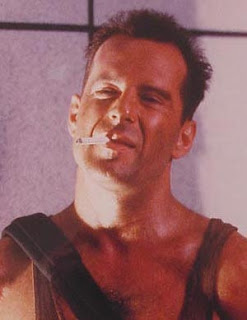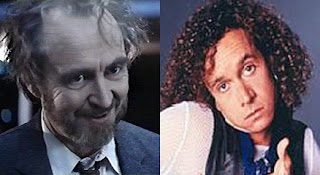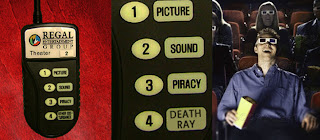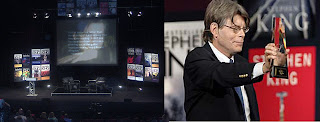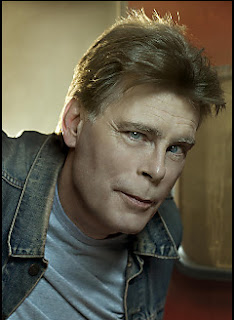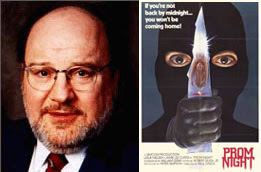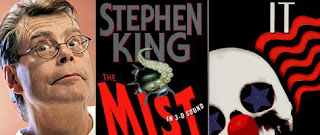
In honour of tomorrow night's Stephen King gala (sorry folks, but Booked! confirmed today there'll be no signings), here's a few items that have made me a long-time fan of the
Maine man (a few things
Malene missed)...
1) Larry Underwood’s
long, dark solo walk through Lincoln Tunnel in "The Stand".
2) "Danse Macabre": still
the definite analysis/celebration of the enduring appeal of the horror genre, which 25 years later cries out for an update.
3) For the too-often unsung humanity of his work, which his critics tend to miss, evidenced in the depiction of even his minor characters, like the young victim of a dog attack in “The Green Mile”:
“Yes, sir”, the boy said shyly—the boy who would be beaten mercilessly on the play-yard by laughing, jeering bullies for all of his miserable years of education, the boy who would never be asked to play Spin The Bottle or Post Office and would probably never sleep with a woman not bought and paid for once he was grown to a manhood’s times and needs, the boy who would always stand outside the warm and lighted circle of his peers, the boy who would look at himself in the mirror for the next fifty or sixty or seventy years of his life and think ugly, ugly, ugly…” (from Pt. 3: “Coffey’s Hands”)
4) For keeping the novella—not too
long, not too
short-- thriving as a literary form (and generally, his best work).
5) “The Mist”: a regular Joe goes out for groceries and gets trapped in a supermarket surrounded by a malevolent fog housing carnivorous beasties. Sounds pretty frickin’
stupid, I know, but it’s a classic nail biter and arguably King’s greatest short story (at least, his most popular), one that inspired one of the first
text-based video games I ever played and at long last is now being filmed by Frank Darabont, who adapted “The Shawshank Redemption” and “The Green Mile” to the screen (from “Skeleton Crew”).
6) For dropping a truckload of
watermelons on future bimbo footnote
Marla Maples, scored by Angus Young's wailing guitar in his only directorial effort, the totally goofy "Maximum Overdrive".
7) For introducing me to the concept of the “
incunabulist”, and for conceiving a perverse and truly moving (against my usual cynical, unsentimental nature) romance in “Lisey’s Story”, a tale of the
possible life his wife Tabitha King could have lived had King been killed in that hit-and-run accident in 1999.
8) The fact that Bangor,Maine residents are so protective of their famous son that they deliberately give
wrong directions to tourists looking to find his house.
9) "Survivor Type", which answers the universal question: how much can a man
eat of himself in order to survive on an island
without food?
“I’m a monster now—a freak. Nothing left below the groin. Just a freak. A head attached to a torso dragging itself along the sand by the elbows. A crab.” (from “Skeleton Crew”)
10)Because unlike the literary darlings who spend ten years writing a book and hanging out at too many New York cocktail parties, King gets up
every day and
writes, and strangely, some people have a problem with that. They should probably spend less time at literary cocktail parties.
11)
“Longer than you think, Dad! I saw! I saw! Long jaunt! Longer than you think!” The
creep-me-out ending of “The Jaunt”, in which the narrator’s 12 year old son skips the knock-out gas and witnesses his teleportation through space, arriving at the other side as “a white-haired thing” that “screamed and clawed at the eyes that had seen the unseeable forever and ever…” (from “Skeleton Crew”)
12) “It”: one of his most personal novels, and a better “The Big Chill” than “The Big Chill”, which would’ve been improved greatly if Kasdan had added a
killer clown and a
wicked alien instead of Jeff Goldblum and Mary Kay Place.
13) That in his early years he preferred to sell his short stories to low-rent and lower-paying "men's magazines" because smut editors
didn’t change a word of what their authors wrote.
14) For
not telling us whether Alfie Zimmer chooses to either kill himself or write his book in “All That You Love Will Be Carried Away”, one of King’s finest short stories (“Everything’s Eventual: 14 Dark Tales”).
15) For making it cool--literary snobs be damned (and they
are...)--to use rock lyrics as
commentary.
16) That he could write a novel as great as "Carrie" in
long hand during breaks at his job at a laundry service, when I've got a private office and a state-of-the-art PC and I can never finish the
first chapter.
17) And that upon selling “Carrie” for his first taste of real money, the first thing he did was buy his wife a
portable hair dryer.
18) He's got the
best Stanley Kubrick stories…
19) He wrote
one page of an issue of Marvel’s “X-Men” for charity, and had Berni Wrightson draw it.
20) And of course, for his continuing use of
italics, his signature that I have shamelessly stolen for my own far less distinguished works…
 One of television's great losses was the cancellation of David Milch's "Deadwood", the gloriously profane and deeply humane Shakespearean western that managed to survive three seasons due to a loyal viewership that didn't grow fast enough for the HBO Pinkertons.
One of television's great losses was the cancellation of David Milch's "Deadwood", the gloriously profane and deeply humane Shakespearean western that managed to survive three seasons due to a loyal viewership that didn't grow fast enough for the HBO Pinkertons.
